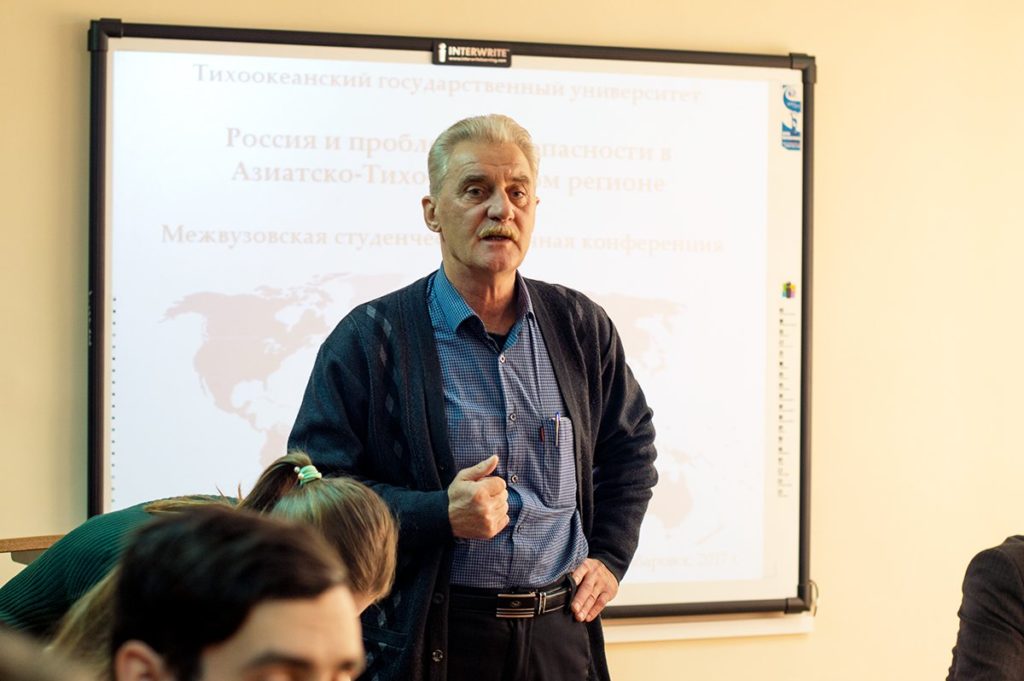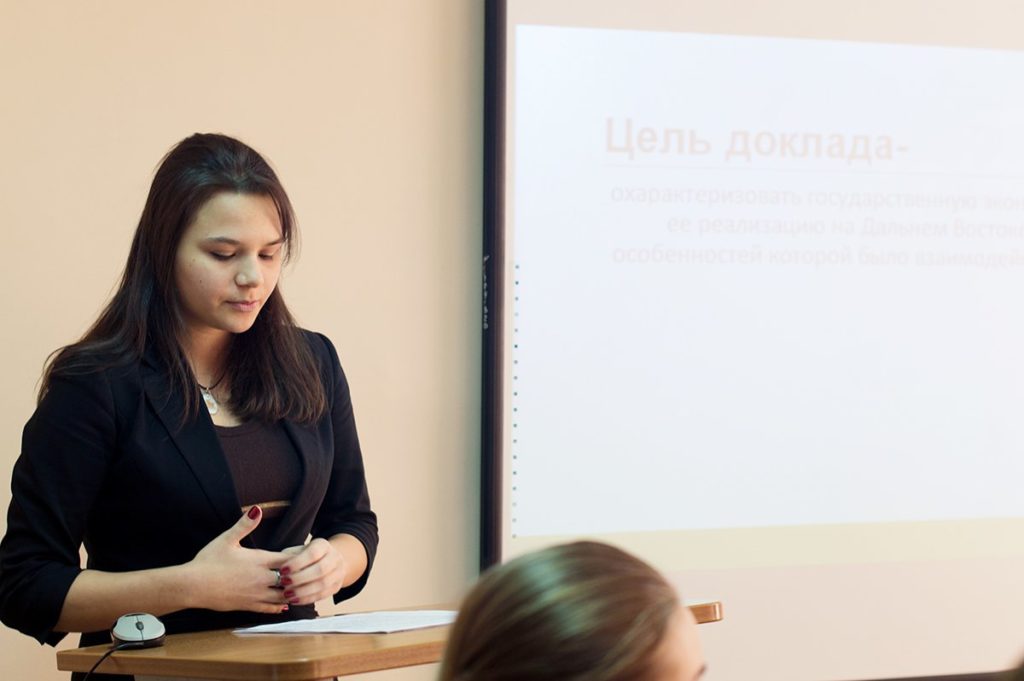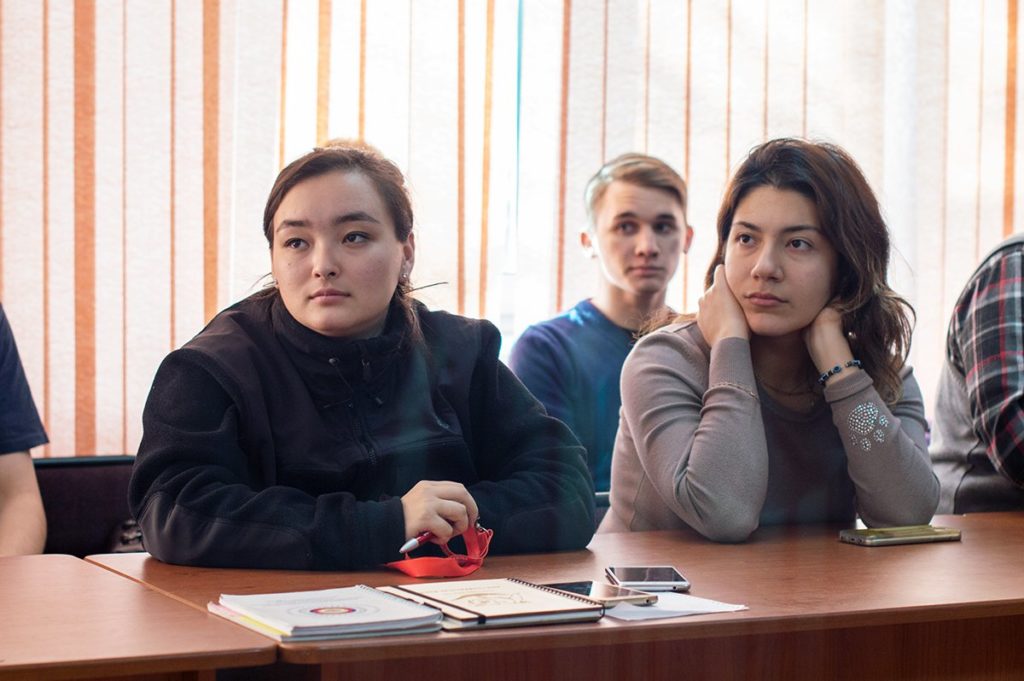
The students of the Pasific National University discussed the problems of security in the Asia-Pacific Region.
Students of the Pedagogical Institute of the Pacific National University took part in the interuniversity scientific-practical conference “Russia and Security Problems in the Asia-Pacific Region.”
On November 24, an inter-university student scientific conference was held on the basis of the Faculty of Oriental Studies and History of the Pedagogical Institute of the Pasific National University. It was devoted to the problems of security in the APR. Guests and participants of the event were able to hear reports that addressed key issues of the region at various stages of its historical development. Among them: the current state of international relations in the APR, Russia’s interaction with Western countries in the region.
The Pedagogical Institute of PNU at the conference was represented by students of the historical department of the Faculty of Oriental Studies and History. The reports of the third-year student Andrei Medvedev and the undergraduate student of the first year of training, Valentin Demchuk, were devoted to the Korean nuclear crisis. They examined the main stages in the development of the Korean nuclear program and the relationship between Korea and the world’s nuclear powers. In the speech of the 4th year student Anastasia Panteleyeva, the history and prospects of Russian-Vietnamese relations were highlighted. In her report she reflected the features of Soviet-Vietnamese relations, as well as cooperation between Russia and Vietnam after the collapse of the USSR. The study of 5th-year student Sergei Vasilenko was devoted to the impact of the Ukrainian crisis of 2014 on Russian-Australian relations. The author concluded that Australia’s economic sanctions against Russia are ineffective, and that they are unprofitable for this state and are retained only because Australia follows the line of US and British foreign policy. In the report of 5th -year student Polina Edeleva, the contemporary policy of the President of the Philippines, Rodrigo Roa Duteret, who’s coming to power became one of the political surprises of 2016 was examined. The turn to national interests in foreign policy, the desire for independence of the country from the Western states, coupled with the rapprochement with Russia and China, the fight against foci of crime in their own country became the “calling card” for the course of the new president. 5th -year student Anton Alekhin in his work reviewed territorial conflicts in the South China Sea and outlined possible prospects for their peaceful settlement. Natalia Brazhnikova, representative of the FENUPS, investigated economic policy in the Far East of the RSFSR and interaction with the APR in 1965-1985. In her speech, the relations between the APR countries and the RSFSR in the context of world politics, border-territorial disputes and economic cooperation were characterized.
Voting of spectators who were guided by the criteria of scientificness, persuasiveness and brightness of speeches helped the jury to determine the winners who received the appropriate diplomas: 1st degree – to Sergey Vasilenko, 2 degrees – to Natalia Brazhnikova and 3 degrees to Valentina Demchuk. The remaining speakers received certificates of participants. The organizing committee of the conference in the person of the head of the department of the Fatherland and World History Valery Timoshenko and the assistant professor of the department Stanislav Slivko expressed the hope that the interuniversity conference next year will become interregional and more students will take part in it. You will be able to familiarize yourself with the articles of the rapporteurs on the website of the Center for International Relations in the Asia-Pacific region, and at the end of the year they will be published in the Bulletin of the Center for the Study of International Relations in the Asia-Pacific Region.
Photo by Catherine Ivanchenko. Press center Pacific State University.
Source: http://pnu.edu.ru/ru/news/2017-11-28-ATR/

 January 10, 2018
January 10, 2018 


 Опубликовано в
Опубликовано в